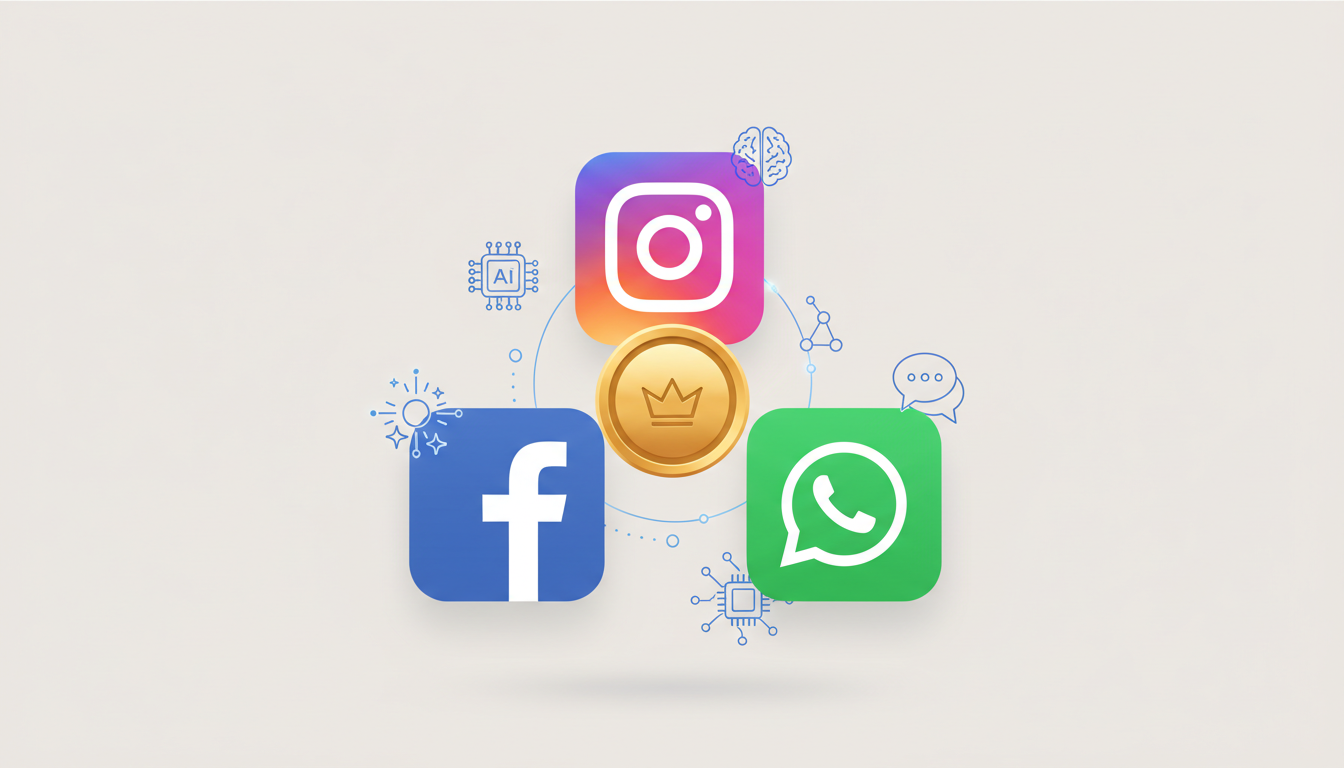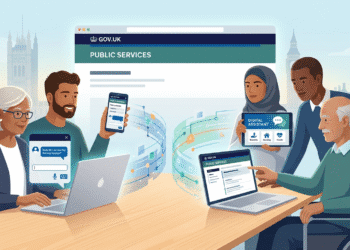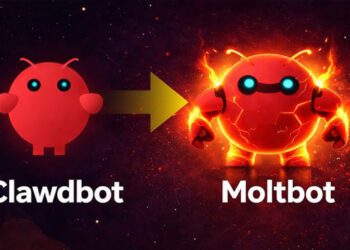Anthropic’s AI assistant can now tap into your Teams chats, Outlook emails, and OneDrive files—transforming how businesses access their scattered data

Your AI coworker just got a whole lot smarter. Anthropic announced this week that its Claude AI assistant now integrates directly with Microsoft 365, giving the chatbot access to your emails, documents, calendar events, and team conversations. It’s a move that could reshape how millions of workers interact with their company’s data and it signals Microsoft’s growing pivot away from its complicated relationship with OpenAI.
The Big Picture: Claude Meets Microsoft 365
Here’s what’s happening. Through a new connector, Claude can now pull information from Microsoft SharePoint, OneDrive, Outlook, and Teams without you having to manually upload anything. Ask Claude about a project deadline buried in a Teams chat, and it’ll find it. Need to summarize feedback from the last three client emails? Claude’s got you covered. Want to know what your company’s remote work policy says? The AI can search across HR documents in SharePoint, email discussions in Outlook, and team guidelines to give you one comprehensive answer.
The integration works through Anthropic’s Model Context Protocol (MCP), an open-source standard the company introduced to make it easier for AI applications to connect with other data sources and apps. Microsoft has been quick to embrace MCP, weaving it into Windows 11 as part of its broader push to transform computers into AI-powered machines you can talk to.
What Claude Can Actually Do Now
Let’s break down the specifics. With the Microsoft 365 connector enabled, Claude gains some pretty powerful capabilities.
SharePoint and OneDrive access means Claude can search and analyze documents across your organization’s sites and libraries. Project specifications, strategic plans, meeting notes all of it becomes searchable through simple conversational prompts. No more hunting through folder after folder or trying to remember which document contained that crucial piece of information.
Outlook integration lets Claude dive into your email threads. It can analyze communication patterns, extract insights from your correspondence, and help you understand project status, client feedback, or team alignment. Think of it as having an assistant who’s read every email you’ve ever sent or received and can instantly recall the relevant bits.
Teams connectivity allows Claude to search through chat conversations, channel discussions, and meeting summaries. That decision your team made three weeks ago in a side channel? Claude can surface it. The action items from last Tuesday’s meeting? Already indexed and ready to retrieve.
Enterprise Search: Breaking Down Data Silos
Beyond connecting to Microsoft 365, Anthropic is rolling out something called “enterprise search.” This feature addresses a problem that plagues most modern businesses: information scattered across dozens of different tools and platforms.
Here’s how it works. Once a company administrator sets things up and connects the organization’s essential tools, everyone in the company gets access to a shared project that’s personalized with the company name. This project includes custom prompts designed to help Claude search effectively across all your company’s connected data sources.
The result? You can ask Claude a question and get an answer that draws from your organization’s collective knowledge not just your own files. According to Anthropic, “Enterprise search is particularly valuable for onboarding new team members, answering strategic questions like analyzing patterns in customer feedback, and quickly identifying the right internal experts to consult on any topic.”
For new hires, this is huge. Instead of spending weeks learning where everything is and who knows what, they can simply ask Claude. For leaders, it becomes an analytics tool that can reveal trends and insights buried deep within organizational data.
Who Can Use It (And How)

There’s a catch, of course. The Microsoft 365 connector isn’t available to everyone. You’ll need a Claude Team or Enterprise subscription to access it. And even then, your company’s administrators need to enable the integration before individual users can connect their accounts.
Once enabled, the setup process is relatively straightforward. Users authenticate with their Microsoft 365 account, and Claude gains delegated permissions to access their data. Enterprise search is automatically enabled for all Team and Enterprise organizations once admins customize the project and curate the data sources.
Your Data Is (Probably) Safe
If you’re worried about an AI assistant having access to your emails and documents, you’re not alone. But Anthropic has built in some important safeguards.
First, all permissions are delegated. If you don’t have access to view something in Microsoft 365, neither will Claude. The AI only has read access it can’t create new content, delete files, or modify anything within your Microsoft 365 environment.
Second, Claude “mirrors your existing Microsoft 365 permissions” and can only access data “when you explicitly ask questions requiring it,” according to Anthropic. It’s not constantly scanning your inbox or reading your private messages. It only looks when you tell it to.
Microsoft’s Strategic Shift Away from OpenAI
This integration is about more than just making Claude more useful. It’s part of a larger story about Microsoft’s evolving AI strategy and its increasingly complicated relationship with OpenAI.
Microsoft has poured billions of dollars into OpenAI, securing a 49% stake in the company’s for-profit division and hosting ChatGPT exclusively on its Azure servers. But that exclusivity started to crack in January 2025 when OpenAI announced the Stargate project a $500 billion initiative with Softbank and Oracle to build data centers across the US.
While Microsoft still holds “right of first refusal” on hosting OpenAI’s models, the writing is on the wall. OpenAI can look elsewhere for computing power if Azure can’t keep up. And OpenAI has often treated its partnership with Microsoft as something it can use and abuse.
So Microsoft has been diversifying. GitHub Copilot now offers ChatGPT, xAI, Gemini, and Claude. On September 10, 2025, Microsoft announced it would be using Anthropic’s AI to run new features in Word, Excel, PowerPoint, and Outlook. Anthropic’s models now help power Copilot Researcher, GitHub Copilot, Copilot Studio, and a new Office Agent that can produce Word and PowerPoint documents from Microsoft’s own Copilot chat interface.
As The Verge notes, “Microsoft is cozying up to Anthropic just as it’s investing more in its own AI models and trying to avoid putting all of its AI eggs in one complicated OpenAI-shaped basket.”
Why Claude? The Technical Edge
There’s a reason Microsoft is leaning more heavily on Anthropic. Claude’s Sonnet 4 model is particularly good at generating slides, PDFs, and spreadsheets from chat prompts exactly the kind of tasks Office users need. It’s also earned a reputation for being one of the best coding models available, which matters for developers using GitHub Copilot.
The Model Context Protocol that makes this integration possible is another advantage. MCP is an open standard, which means it’s easier for different systems to work together. Microsoft has been quick to adopt it, using MCP connections in its new AI assistant features in Windows 11.
For example, Microsoft’s recent announcement about a dedicated AI assistant that responds to “Hey, Copilot!” includes Manus, an AI agent that can build websites. Thanks to MCP, Manus can grab files and photos from your PC to create custom websites while you work on other projects.
The Bigger Workplace AI Battle
This integration is also a shot across the bow in the intensifying battle for workplace AI dominance. Microsoft isn’t the only company trying to make AI assistants indispensable to knowledge workers.
Google has been pushing Gemini integration across its Workspace apps. Slack has been building AI features into its platform. Notion, Asana, and countless other productivity tools are racing to add AI capabilities. The question isn’t whether AI will be part of your work life it’s which AI will win.
What makes the Claude-Microsoft partnership interesting is the combination of reach and capability. Microsoft 365 has hundreds of millions of users worldwide. Claude has the technical chops to handle complex queries and generate useful outputs. Put them together, and you have a formidable offering.
What This Means for You
If you’re using Microsoft 365 at work, this integration could save you hours every week. No more digging through old email threads to find that one attachment. And no more asking around to figure out who knows about a particular project. Also no more manually compiling information from five different sources to answer a strategic question.
But it also raises questions. How comfortable are you with an AI reading your emails? What happens when Claude surfaces information you didn’t want surfaced? How do you ensure the AI isn’t perpetuating biases or making incorrect assumptions based on incomplete data?
These aren’t hypothetical concerns. As AI becomes more deeply embedded in our work tools, we’ll need to grapple with issues of privacy, accuracy, and control. The fact that Claude only has read access and mirrors your existing permissions is a good start, but it’s not the end of the conversation.
What’s Next
The Microsoft 365 connector is available now for Claude Team and Enterprise customers, though administrators need to enable it first. Anthropic says enterprise search is also enabled for all Team and Enterprise organizations once admins set things up.
Looking ahead, we can expect deeper integrations, more sophisticated search capabilities, and potentially predictive insights. Anthropic has been steadily improving Claude’s contextual reasoning abilities. Future updates might include features that can anticipate what information you’ll need before you ask for it, or that can automatically flag important developments across your organization’s data.
Microsoft, meanwhile, continues to rewrite Windows to make AI a core part of the operating system. The company’s vision of “AI PCs that you talk to” is becoming reality, and integrations like this one with Claude are building blocks toward that future.
The Bottom Line

Claude’s integration with Microsoft 365 represents a significant step forward in making AI assistants genuinely useful for everyday work. By connecting to the tools millions of people already use, Claude becomes more than just a chatbot it becomes a genuine productivity multiplier.
For Microsoft, it’s a smart hedge against overreliance on OpenAI and a way to offer customers the best AI capabilities regardless of who builds them. While for Anthropic, it’s a massive distribution opportunity and validation that Claude can compete with the biggest names in AI.
For the rest of us? It’s a glimpse of a future where finding information at work is as simple as asking a question. Whether that future is exciting or unsettling probably depends on how much you trust AI with your data and how much you value the time you’ll save not searching for it yourself.
Sources
- Anthropic – Claude and your productivity platforms
- The Verge – Anthropic connects Claude to Microsoft Teams, Outlook, and OneDrive
- Digital Trends – Claude just got a Microsoft-sized brain boost for workplaces
- The Decoder – Claude users can access Microsoft 365 data and search enterprise resources within chat
- Windows Central – How Anthropic’s Claude AI now enhances Outlook, Teams, and OneDrive
- Gadgets360 – Anthropic Connects Claude With Microsoft 365 Platforms









Comments 2